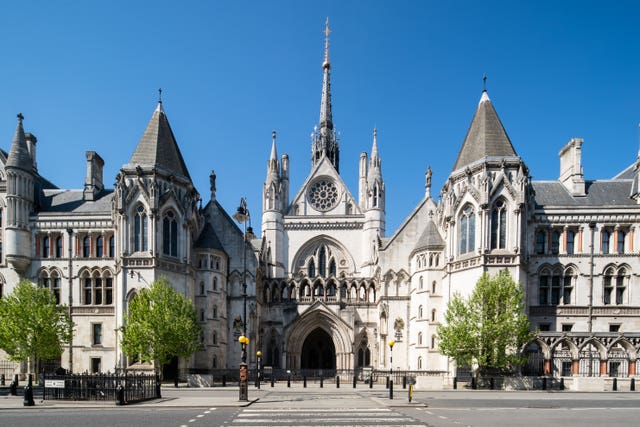
Many thousands of EU citizens living in the UK were prevented from voting in the 2019 European Parliament elections because of onerous registration requirements and made to feel “second class”, a lawyer representing a campaign group has told judges.
The3million, which campaigns for an estimated three million EU citizens living in the UK, has taken legal action against the Cabinet Office after complaining that people were told voting forms had been “lost”, and were unfairly turned away from polling stations on May 23 2019.
Campaign leaders say an Electoral Commission report suggested that more than a million people who had registered to vote did not exercise their rights.
Lawyers representing the Cabinet Office dispute the claims and are fighting the case.
Two judges sitting in London began considering arguments at a High Court hearing on Tuesday.

Barrister Gerry Facenna QC, who represents the3million, said there had been a “mass disenfranchisement” due to “onerous voting registration requirements” and the because of the “conduct” of the Cabinet Office in the lead-up to the elections.
“What occurred here was a matter of considerable public concern,” he told judges Lord Justice Lewis and Sir Michael Supperstone.
“People felt they were treated like second-class citizens.”
He said the UK had been a full member of the EU at the time and said the 2019 elections were particularly significant because of their timing in relation to the UK’s withdrawal from the EU.
The3million wants judges to declare that the Government acted unlawfully.
Mr Facenna said such a declaration would provide people with “vindication” and told judges that there had been a “systematic” problem.
He suggested that some people might be entitled to damages – if judges ruled against the Cabinet Office.
Lawyers representing the Cabinet Office say requirements imposed were justified, and consistent with EU law.
A Cabinet Office spokesman said, before the hearing: “We put in place all the necessary legislation and funding to enable returning officers to make their preparations for the polls in May 2019, and there was a higher turnout than in the previous European election.”
Solicitors representing the3million had said before the hearing that many people had completed special forms to certify that they intended to vote but were but were told the forms had been “lost” or “not processed in time”.
“This was no accident,” said a spokesman for law firm Bindmans.
“The Government had decided not to formally confirm that the elections would be taking place until May 7 – the very same day when EU citizens were legally required to return their forms.”
Solicitor John Halford added: “We want a declaration that the way the election was conducted disenfranchised EU citizens and breached people’s voting rights.”
The hearing is due to end on Wednesday.


Comments: Our rules
We want our comments to be a lively and valuable part of our community - a place where readers can debate and engage with the most important local issues. The ability to comment on our stories is a privilege, not a right, however, and that privilege may be withdrawn if it is abused or misused.
Please report any comments that break our rules.
Read the rules hereComments are closed on this article